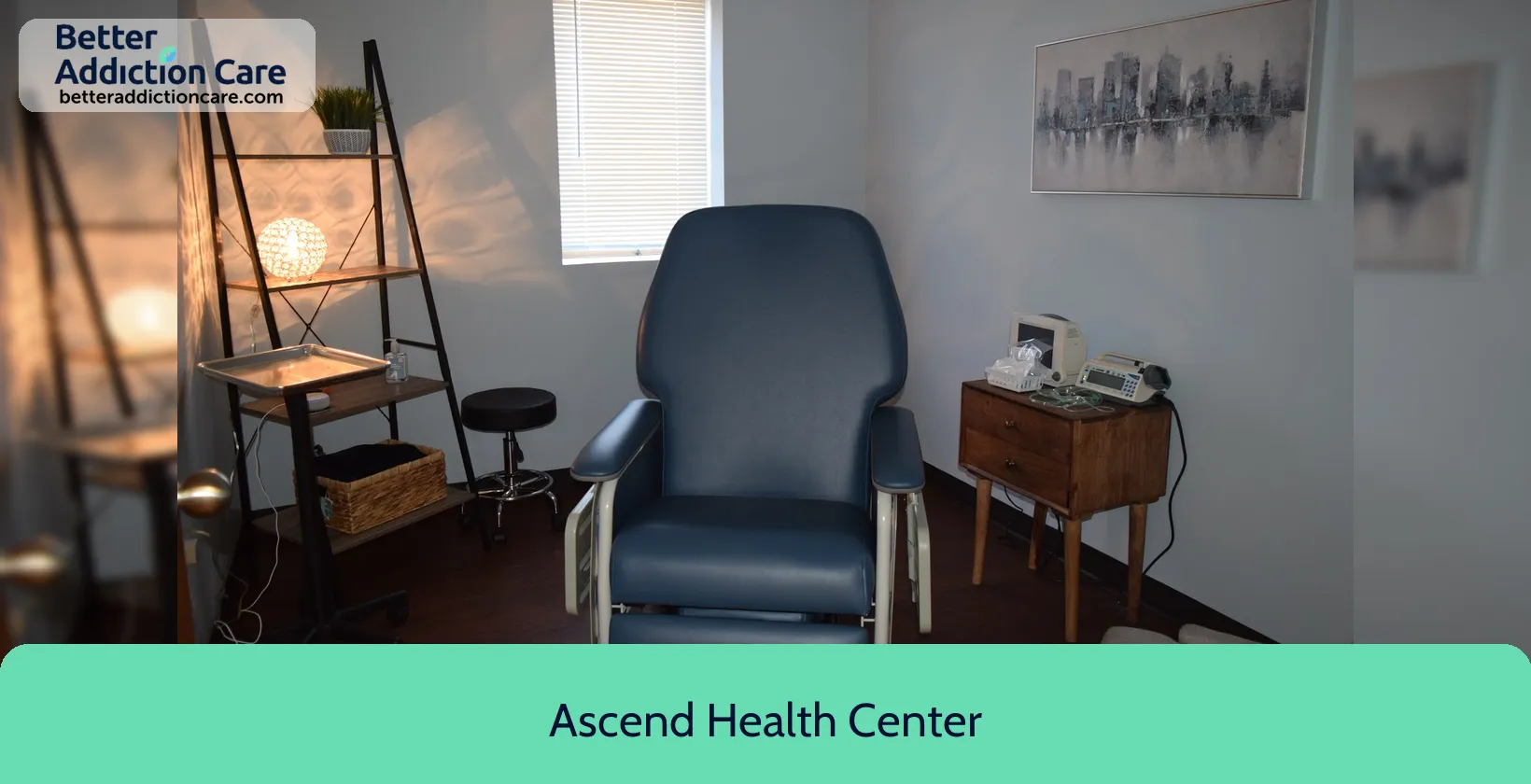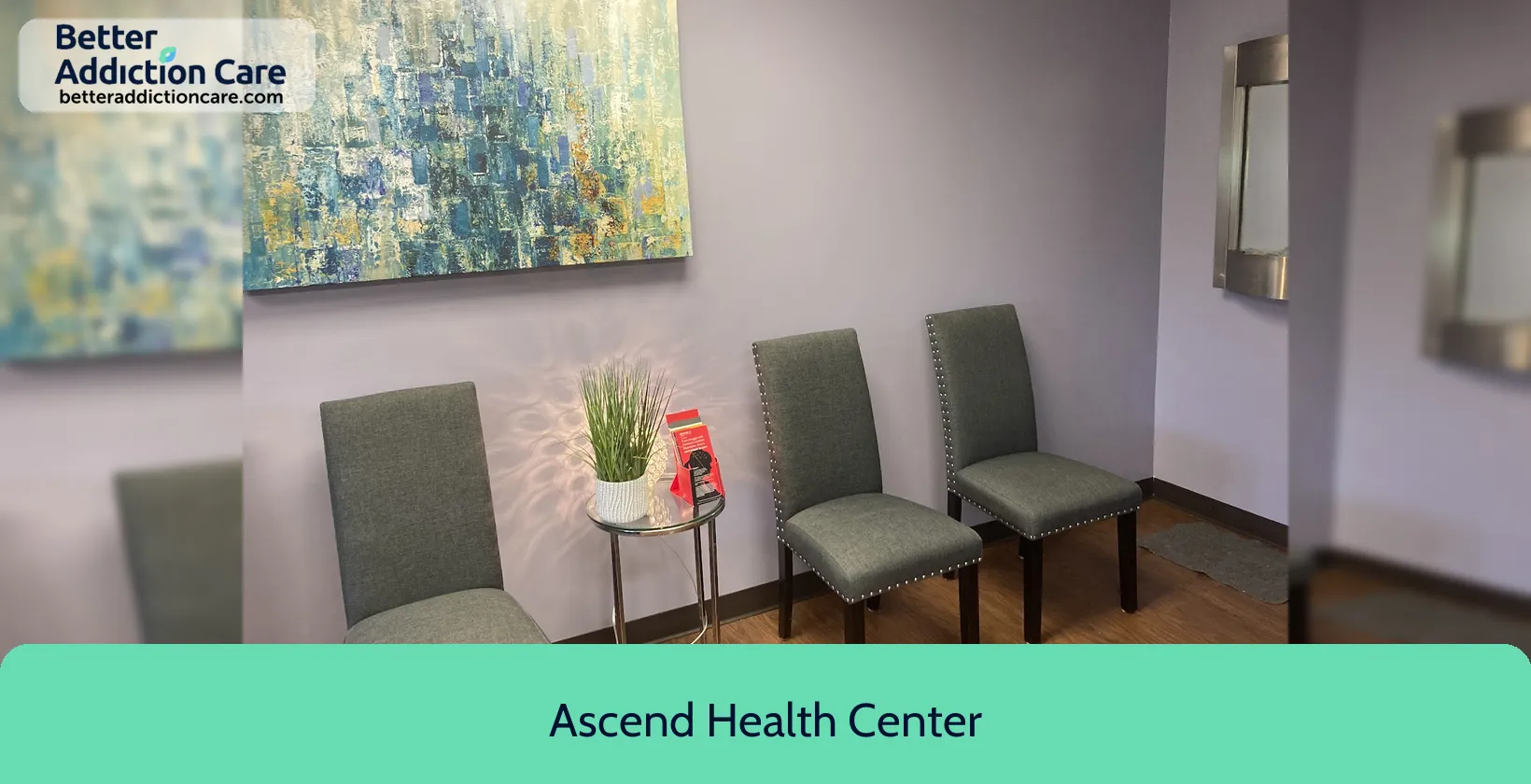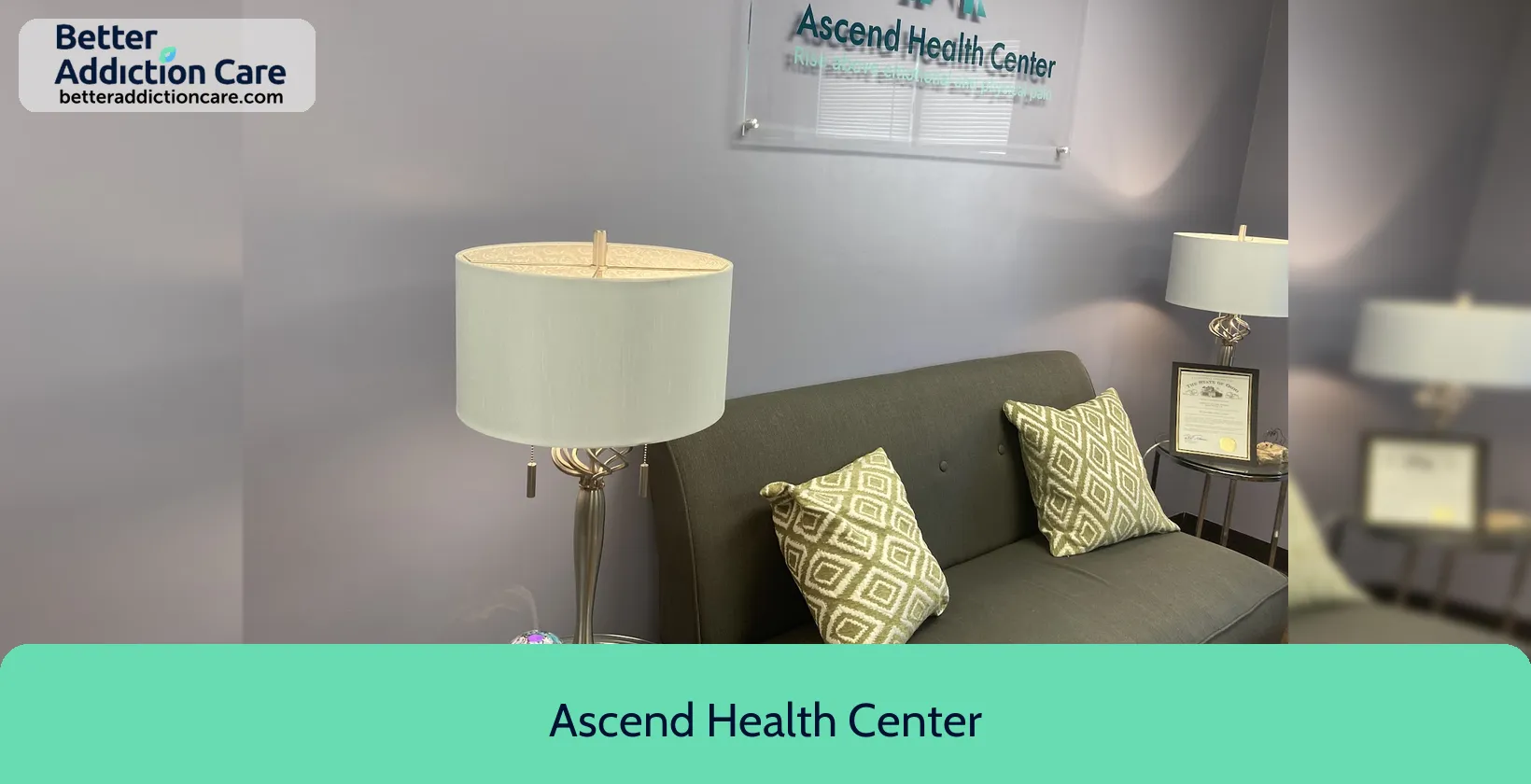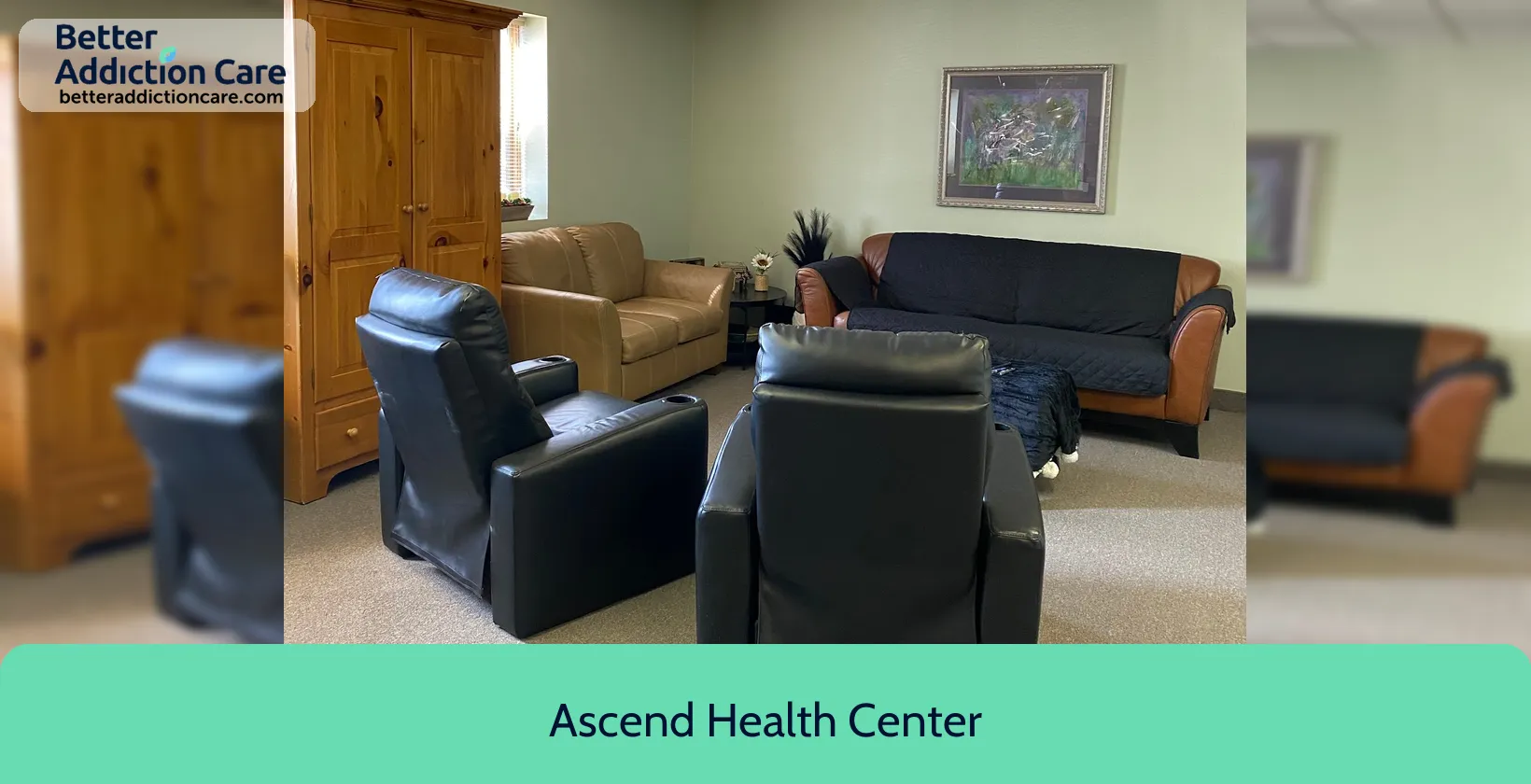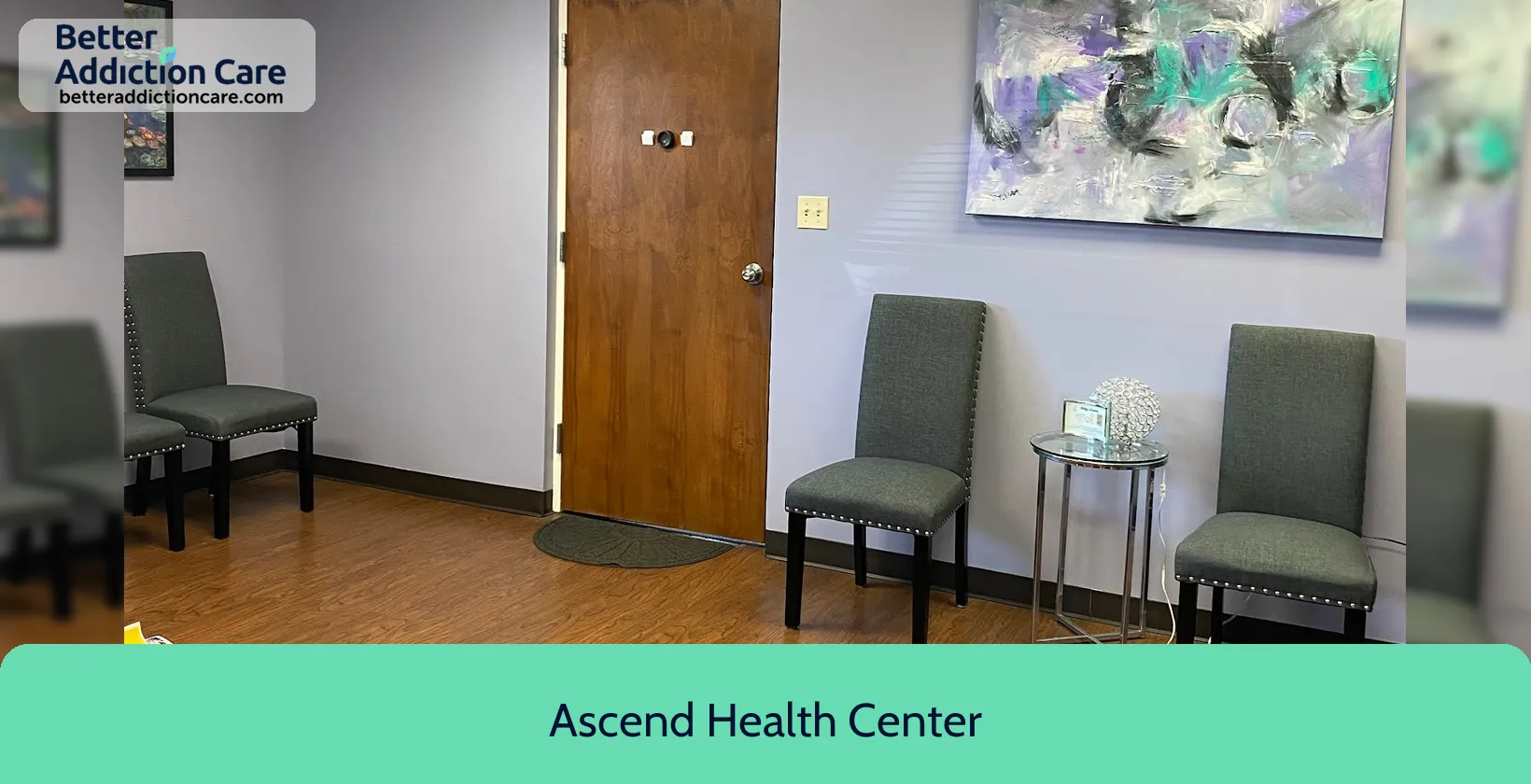Ascend Health Center
Overview
Ascend Health Center is a mental health treatment center for people seeking treatment near Summit County. As part of their treatment modalities for recovery, Ascend Health Center provides couples/family therapy, group counseling, and cognitive behavioral therapy during treatment. Ascend Health Center is located in Akron, Ohio, accepting cash or self-payment for treatment.
Ascend Health Center at a Glance
Payment Options
- Cash or self-payment
- Medicaid
- Medicare
- Private health insurance
Assessments
- Screening for tobacco use
- Comprehensive mental health assessment
- Comprehensive substance use assessment
Age Groups
- Seniors or older adults
- Children/adolescents
- Young adults
- Adults
- Seniors
Ancillary Services
- Suicide prevention services
Highlights About Ascend Health Center
6.74/10
With an overall rating of 6.74/10, this facility has following balanced range of services. Alcohol Rehabilitation: 8.00/10, Drug Rehab and Detox: 6.00/10, Insurance and Payments: 6.00/10, Treatment Options: 6.97/10.-
Alcohol Rehabilitation 8.00
-
Treatment Options 6.97
-
Drug Rehab and Detox 6.00
-
Insurance and Payments 6.00
Treatment At Ascend Health Center
Treatment Conditions
- Mental health treatment
- Alcoholism
- Substance use treatment
- Co-occurring Disorders
Care Levels
- Outpatient
Treatment Modalities
- Couples/family therapy
- Group counseling
- Cognitive behavioral therapy
- Dialectical behavior therapy
- Integrated Mental and Substance Use Disorder treatment
Ancillary Services
Languages
- Spanish
Additional Services
- Pharmacotherapies administered during treatment
- Laboratory testing
Special Programs
- Clients with co-occurring mental and substance use disorders
- Children/adolescents with serious emotional disturbance (SED)
Get Help Now
Common Questions About Ascend Health Center
Contact Information
Other Facilities in Akron

6.96

7.11

7.06

6.77

7.09

6.74

7.78
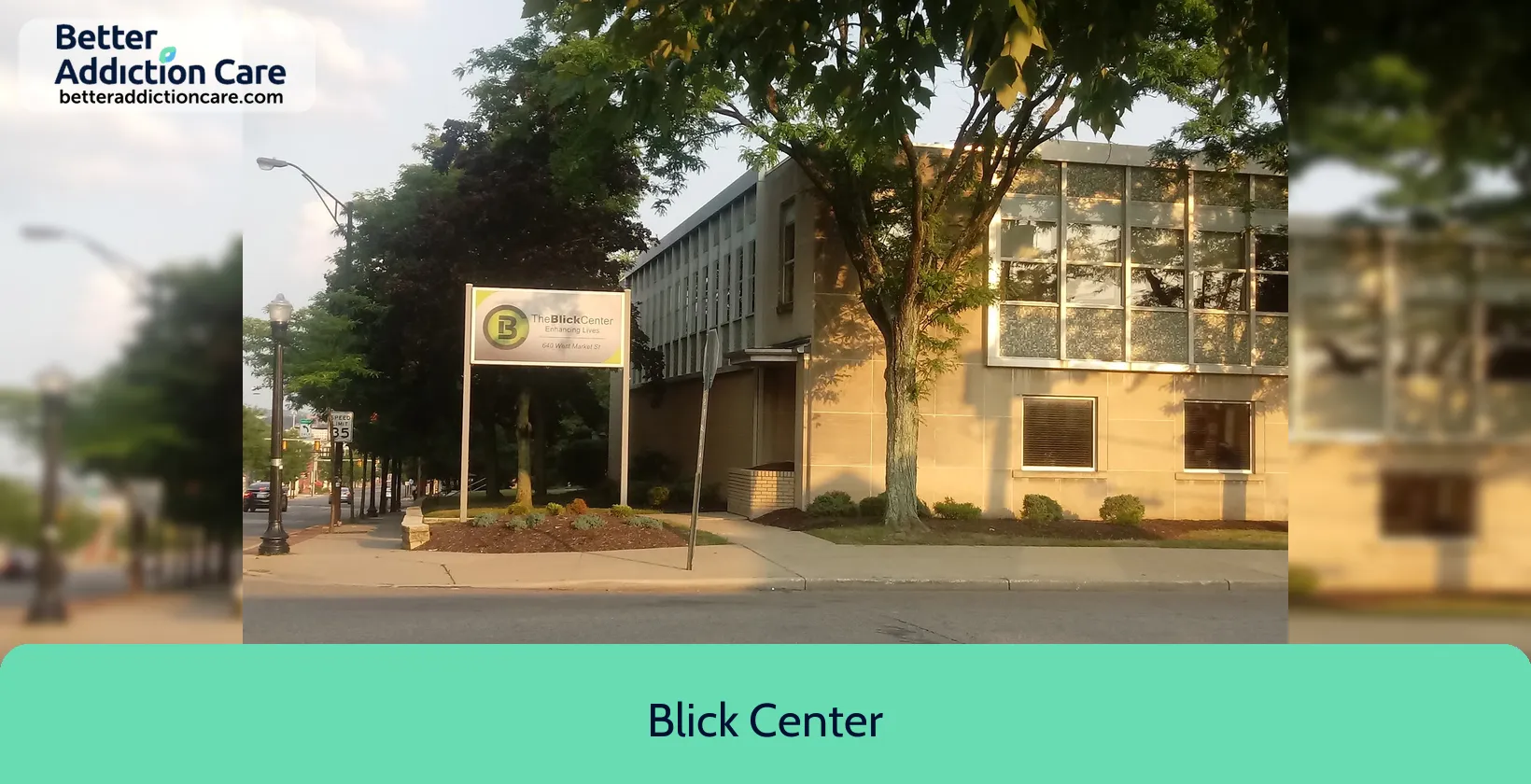
6.74
DISCLAIMER: The facility name, logo and brand are the property and registered trademarks of Blick Center, and are being used for identification and informational purposes only. Use of these names, logos and brands shall not imply endorsement. BetterAddictionCare.com is not affiliated with or sponsored by Blick Center.
